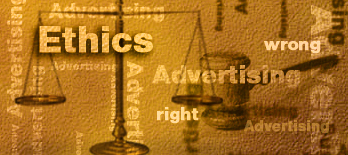In journalism class and on the yearbook staff, cover ethics first.
While understanding law – copyright, libel, invasion of privacy, obscenity, business issues, students’ rights – is important, good ethics help curb abuse of rules and the law and guide staff behavior toward noble goals. Ethics are the key in balancing student rights with responsibilities and respect.
The publication staff does not own the yearbook but rather serves as custodian of its continuity. Therefore, ethical considerations should extend beyond individual attitudes and ponder (1) moral principles of the school mission, (2) established ethical codes in journalism and (3) proprieties of the community. These institutional guidelines set self-enforced parameters that help contain individual and whole-staff actions within the arena of what’s good and right.
Law tells us what we can do; ethics, what we should do. Serving on a yearbook staff creates opportunities for good, bad, right and wrong decisions. Staff members can misuse the power of their position for self-serving rather than virtuous purposes. The integrity of the yearbook must be protected right from the beginning, because the direction that ethics take will either nurture or poison the book’s value.
Student editors and their faculty adviser are charged with overseeing ethical behavior. They can be proactive by initiating several practices:
- Begin with knowing the staff. Which students joined yearbook to capture the school story — imaginatively, objectively and fairly? Who joined to choose pictures of friends and to engage in biased coverage? Which students are intrinsically motivated, highly “coachable” and team players? Who is more status-conscious, lackadaisical and superficial? It shouldn’t take long to identify students who are more ethically challenged. Keep an eye on them and plan how to help them remediate their moral deficiency.
- Have a publication policy manual. Include a system of checks and balances to hold staff ethically accountable, thereby protecting both the book and the interests of readers.
- Regularly discuss ethical issues. Identify them in the media and every week in your own yearbook work – from picture selection to coverage determination; from story content approach to photograph enhancements/alterations; from honoring copyright to avoiding libel; from resisting unscrupulous lobbyists to embracing fair criticism; from conducting reputable business practices to the question of using yearbook funds to improve staff training and morale. Regular staff discussions will help safeguard the book from ethical lapses.
- Adopt a Code of Ethics. Many professional journalism associations have their own Code of Ethics. Read them. Adopt one or write your own. Post it for constant review.
- Submit yearbooks to external evaluators. They can provide a more objective look at the book’s strengths and weaknesses, including issues that involve ethical judgments. Enter contests and choose evaluating services offered by various state and national student press associations.
- Build rapport with school officials. Administrators have keen insight and a panoramic perspective of things that the yearbook staff may not see. Knowing the full story of an issue or event can raise ethical questions not realized at a more shallow level of understanding. Communicate with school leaders. Seek their input when you are not sure about an ethical decision.
There is a difference between what is a legal right with what is the right thing to do. When a yearbook staff balances law with ethics, it achieves the harmony that best supports a free and responsible student yearbook.




